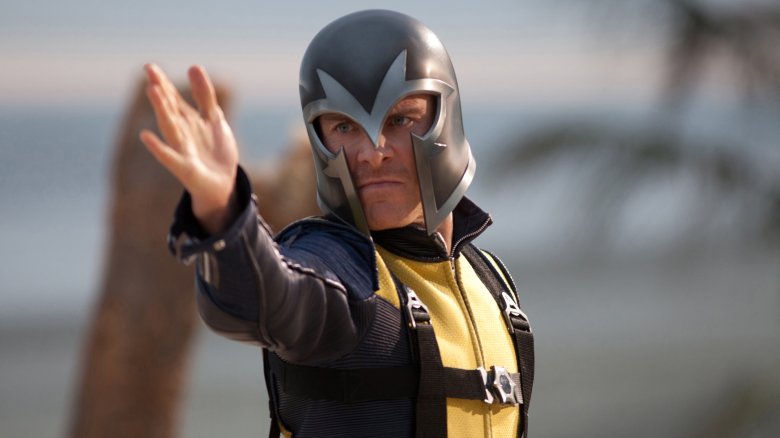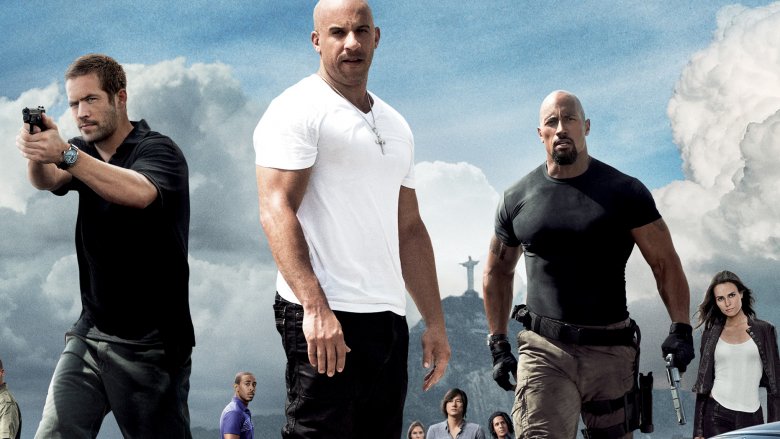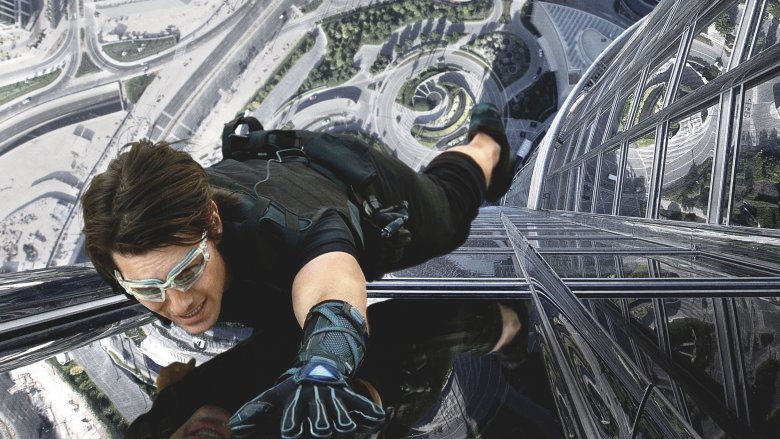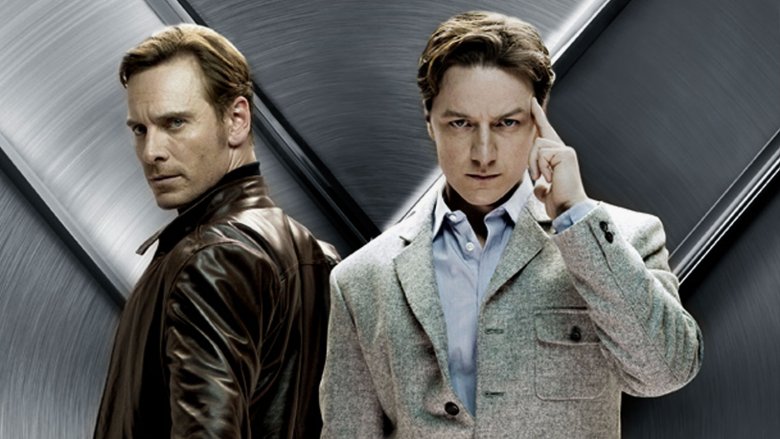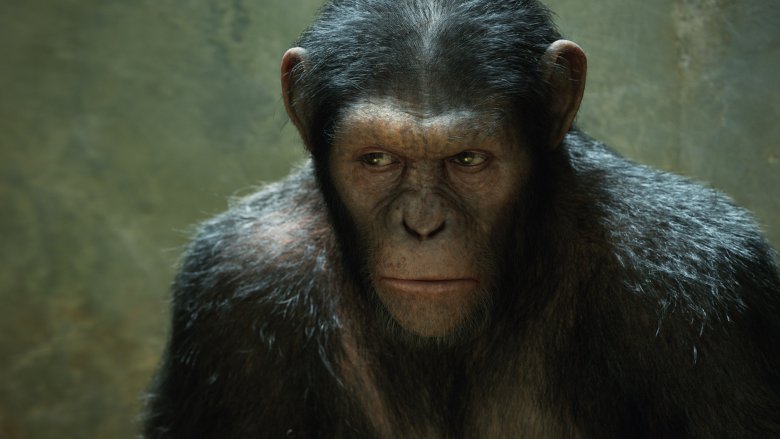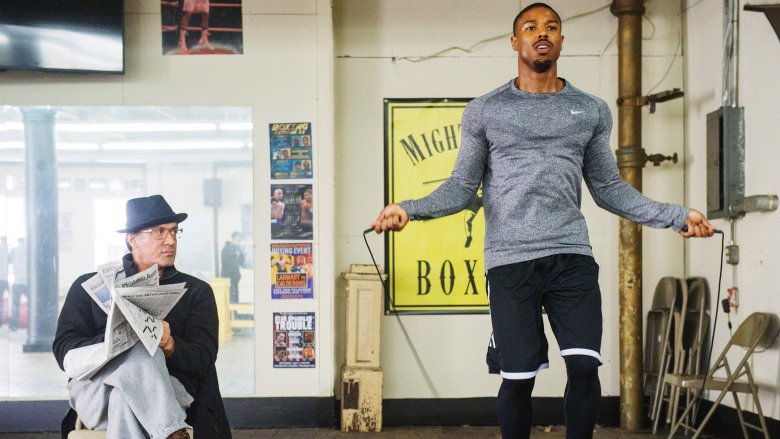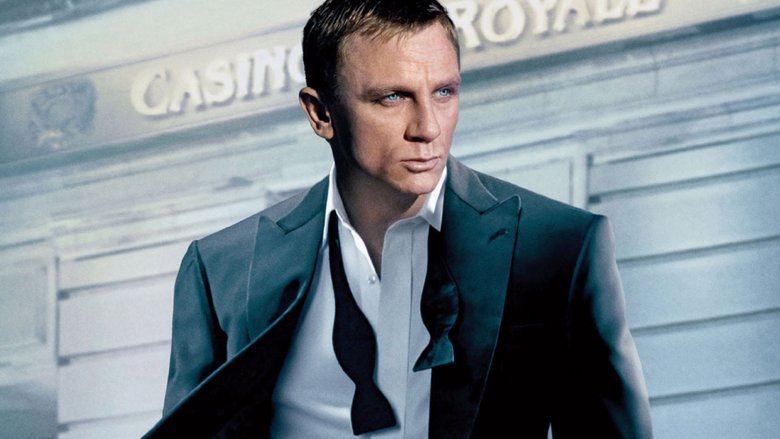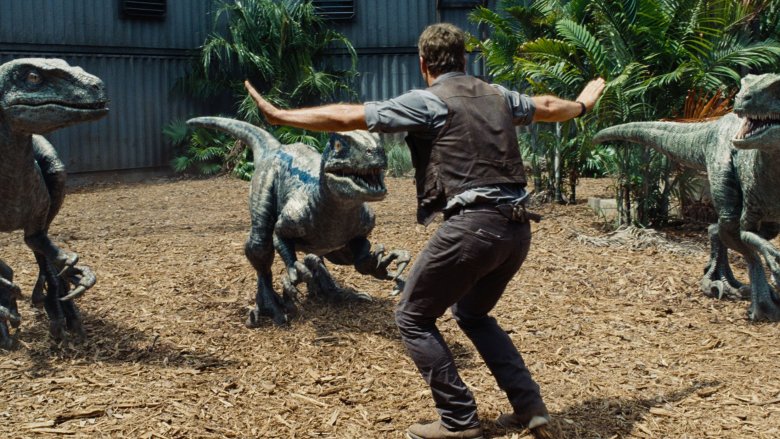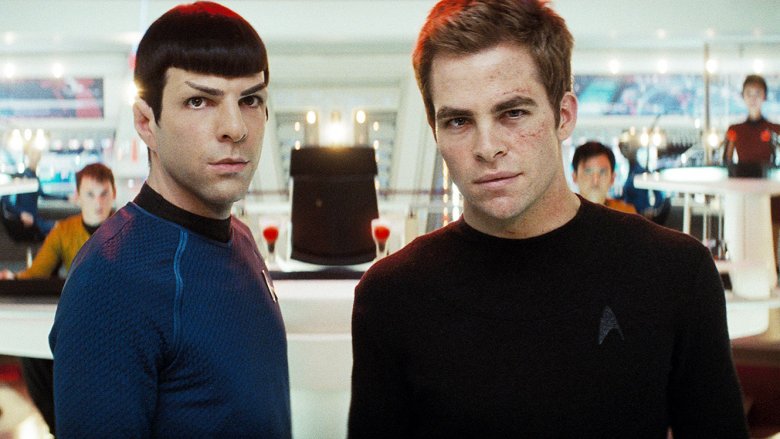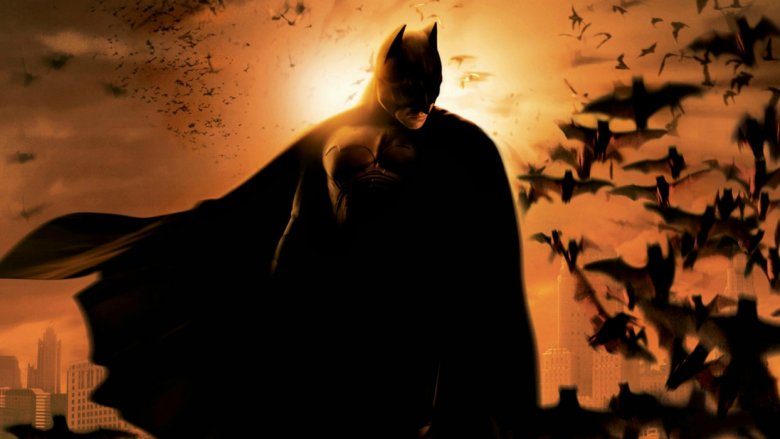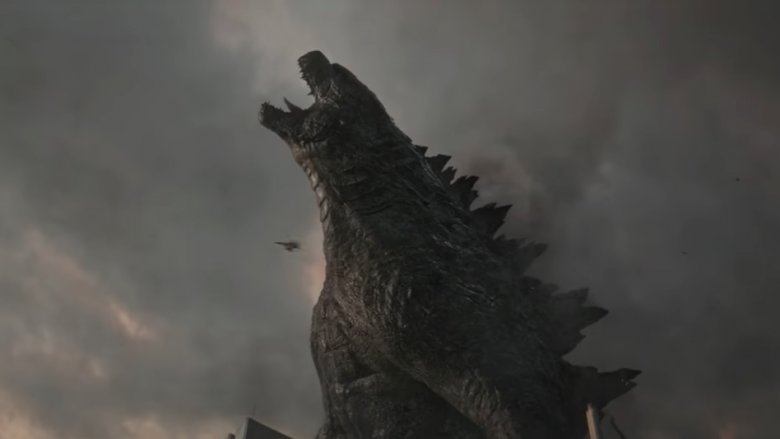Movies That Singlehandedly Revived Franchises
Sometimes franchises fade away. No matter how popular they may be in their heyday, sometimes all it takes is one clunker — be it critical or financial — to put the fear of god into a movie studio. Future plans get scrapped, and soon it's a distant memory. Sometimes the franchise may manage to crank out a few more installments, but the luster has worn off all the same, and audiences lose interest over time. In cases like these, drastic measures are necessary in order to bring a franchise back from the proverbial dead — reboots, reinventions, and creative Hail Marys are required if a studio wants to revive a franchise. With the right director, the right cast, and the right vision, it's possible to bring a franchise back from obscurity and make it a can't-miss series again — and with that in mind, here's a look at some of the best movies that singlehandedly revived a franchise.
Fast Five (2011)
A person could argue that 2009's Fast & Furious reinvigorated the franchise from which it takes its name. It is, after all, the film that reunited the film's original cast after one sequel that effectively served as a Brian O'Connor spinoff and another that featured no original cast members aside from a brief Vin Diesel cameo. And sure, that film may have technically paved the road for the sequels that followed, but it wasn't the moderately successful Fast & Furious that turned a gearhead car-centric series into a veritable cinematic juggernaut. That's all on Fast Five.
The first in the series to break $200 million at the domestic box office, the film earned surprisingly positive reviews — and is notable for introducing Dwayne "The Rock" Johnson to the cast as the initially antagonistic DEA Agent Luke Hobbs. He proves a perfect foil for Diesel's Dom Toretto, and watching the two duke it out is a blast. Additionally, the film pivots the series into heist territory, which proves to be an exhilarating breath of fresh air. Director Justin Lin's eye for action has never been tighter, the cinematography never crisper or cleaner, and the franchise itself never more entertaining. Sure, it's fun to watch the scope of its insanity expand in the increasingly ridiculous sequels, but it's Fast Five that resurrected a middling franchise and stands out as an action cinema staple of its generation.
Mission: Impossible - Ghost Protocol
Sometimes all it takes is a single image to sell audiences on a movie. The Mission: Impossible franchise had been running for nearly a decade in 2011, never sputtering out but also never much more than just another summer blockbuster. That all changed in 2011, when the first teaser for the fourth installment, Mission: Impossible – Ghost Protocol, treated audiences to the sight of Tom Cruise dangling from the side of the tallest building in the world.
That's all it took. Once word got out that Cruise performed the death-defying stunt without a double, Mission: Impossible was can't-miss cinema for the first time in ages. The movie lived up to the hype, too: under the deft direction of The Incredibles director Brad Bird, it's a thrilling rollercoaster filled with exotic locales and killer set pieces, beautifully shot by director of photography Robert Elswit. Since Ghost Protocol, followups Rogue Nation and Fallout have opened to acclaim from critics and audiences. As good as these movies have always been, sometimes you just need to show people Tom Cruise cheating death to make sure they stay interested.
X-Men: First Class
For a film ostensibly designed with sequels in mind, X-Men: The Last Stand makes some genuinely bizarre decisions. Despite a post-credits scene that clearly sets up some future plans for the franchise, the film goes out of its way to make it as difficult as possible to sell audiences on a followup. A number of characters, including mainstays Jean Grey and Cyclops, are dead by the end. Rogue and Magneto are powerless. The X-Men are in shambles. It's not an impossible place to build a sequel from, but it was also an uphill battle, and it didn't help that the film received lousy reviews. The solution? Start over.
X-Men: First Class brought in new-to-the-franchise director Matthew Vaughn to lead audiences back to the team's foundation in the 1960s. It features a wheelchair-less Charles Xavier (played by James McAvoy) whose friendship with Magneto (Michael Fassbender) has just begun to blossom. Jennifer Lawrence makes her debut as a not-yet-evil Mystique, and Kevin Bacon chews scenery like a pro as Sebastian Shaw, the leader of the sinister Hellfire Club. The film is a blast, and audiences were suddenly excited about the future of the X-Men again. First Class repaired the damage wrought by The Last Stand — and propelled the X-Men back to the forefront of the superhero cinema world for sequels like Days of Future Past and Apocalypse as well as spinoffs like Logan and Deadpool.
Rise of the Planet of the Apes (2011)
Rebooting a franchise with an origin story can feel like a cheap move. Origin stories feel pretty played out these days, and tacking one on to a franchise that fans have lost interest in is risky to say the least. In the wake of Tim Burton's critically reviled reboot of Planet of the Apes, it seemed like nothing (and especially not another origin story) could revive interest in the franchise.
Enter director Rupert Wyatt, who took the story back to the beginning for Rise of the Planet of the Apes, crafting a tremendously affecting tragedy about the threat of mankind's reach extending beyond its grasp. Most importantly, he cast Andy Serkis as Caesar, the first of the sentient apes and the eventual leader of the ape uprising. Serkis' motion-capture performance defies belief; it's no surprise that there was a push to see him nominated for Best Actor at the Oscars. It launched two sequels directed by Matt Reeves, forming the rare perfect blockbuster trilogy and a case study in the right way to reboot a franchise that seems lost forever: treat the source material with the utmost respect, never pander, and let directors tell great stories. Oh, and hire Andy Serkis. Always hire Andy Serkis.
Creed (2015)
In the wake of Ryan Coogler's critically acclaimed 2013 debut Fruitvale Station, the idea of the young filmmaker reviving the Rocky franchise with a story about Rocky Balboa training his old friend Apollo Creed's son seemed like a pipe dream — the sort of thing you fantasize about over dinner with your film buff friends. Who could have guessed that it would actually happen? Furthermore, who could have guessed that it'd end up being one of the best films of the decade?
Actor, writer, and director Sylvester Stallone has long been the driving creative force behind the franchise. It seems obvious in hindsight, but after the seemingly conclusive Rocky Balboa in 2006, all the series needed to bring it back to its once great heights was some new blood behind the camera. Coogler stepped in as the film's co-writer and director, refocusing the story on Adonis, Apollo's illegitimate son, who decides he wants to pursue boxing full-time — and Rocky, after much hesitation, steps in as his coach. It's a thrilling, emotionally charged story that garnered critical acclaim and awards season hype, even securing Stallone a Golden Globe for Best Supporting Actor — and quickly leading to plans for Creed II, sending this franchise's unlikely spinoff into a franchise of its own.
Casino Royale (2015)
It's hard to blame audiences for seemingly losing interest in James Bond during the Pierce Brosnan years — what started out so strong with GoldenEye quickly led to a double-header of overindulgent disasterpieces. It's a coin toss to determine which is worse, The World Is Not Enough or Die Another Day. The franchise had jumped the shark.
Director Martin Campbell and new Bond actor Daniel Craig decided the best way to revitalize the franchise would be to strip the character down to his barest essentials, and the result is Casino Royale, an adaptation of Bond author Ian Fleming's first novel. It serves as a new beginning for the character without ever fully leaning into origin story tropes (we never find out, say, why Bond loves his Walther handguns, or see him sip his first martini). Instead, it re-contextualizes the character for the modern age with a grounded story that relies far more on suspense than bombastic supervillains and corny gadgets. It paved the way for a Craig-led franchise revival; in fact, you could argue that it's one of the best Bond movies ever (so far, at least).
Jurassic World (2015)
You'd think a franchise centered on a theme park populated by actual dinosaurs would have had better luck with sequels. Unfortunately, Steven Spielberg's Jurassic Park wasn't so lucky. While the original film proved a veritable generational landmark of pop culture, the sequels produced quickly diminishing returns. By the time Jurassic Park III reared its head, the franchise seemed all but dead.
A fourth installment languished in development hell for a decade before production started on 2015's Jurassic World, which takes the franchise back to basics by depicting yet another theme park populated by dinosaurs who once again escape and wreak havoc. It proved a blockbuster sensation and almost instantly a sequel was greenlit, which also in turn left a big footprint at the box office. With a third installment on the way and a world of storytelling potential still left, it's hard to imagine that Jurassic World will go extinct any time soon.
Star Trek (2009)
You can't keep a good franchise down, not even after an installment as dreadful as Star Trek: Nemesis. The swan song for the Star Trek: The Next Generation cast on the big screen seemed to kill the franchise's cinematic potential for good. Fortunately, director and producer J.J Abrams saw to it that fans wouldn't have to go without adventures aboard the Enterprise for long.
The 2009 Star Trek reboot goes back to the characters featured in the original television series and modernizes them for a new audience. It's daring, adventurous sci-fi, exactly the kind of bold vision and conviction that should be taken into any reboot that really seeks to stick its landing. Anchored by a tremendously charismatic cast, it's about as good as big summer blockbusters get, and infinitely re-watchable years after its release. While its sequel Into Darkness was well-received critically, it proved divisive among fans. The third installment saw director Justin Lin take over for Star Trek Beyond , which notched another box office success and critical success for the franchise. With a fourth film on the way, what Abrams did with Star Trek still feels like something special.
Batman Begins (2005)
Batman is such a box office staple, and so integral to pop culture, that it's hard to remember how gloomy the franchise's future appeared in the wake of Batman & Robin. The infamous 1997 flop was so critically reviled that the sequel was canceled, and for years it seemed like the Caped Crusader might never swing back into theaters.
The solution? Reaching back to some of the great Batman comics of all time. Director Christopher Nolan looked to Year One and The Long Halloween when revamping the character with 2005's Batman Begins. He drew heavily from the source material, centering the story on a young Bruce Wayne whose crusade against crime is still in its infancy. While supervillains like Scarecrow and R'as al Ghul make appearances, they're far more grounded and tied directly to the real villains of the film: organized crime families that rule Gotham from behind the scenes. It's a gripping thriller that completely re-contextualizes Batman for a new generation of fans. Since its release there's almost always been a Batman movie in development — which is exactly as it should be.
Godzilla (2014)
Giant monsters are so inherently cool that it's hard to understand the huge periods of time when their movies stop tearing up the box office. And as iconic as Godzilla may be, everyone's favorite giant lizard pretty much stayed away from American movie theaters for over a decade after 1998's lousy attempt. You can't keep a good giant lizard down for long, though, and in 2014 director Gareth Evans brought Godzilla back — and left the door open for some friends, too.
Godzilla is a grim slow burn of a monster movie. It features some genuinely stunning cinematography and takes its time in teasing out the reveal of the titular giant lizard. While some of the plot surrounding its human characters falls a little flat, the monster action is second to none. In 2017, another classic giant monster made his return when King Kong came back to wreak havoc in Kong: Skull Island, which takes place in the same universe. In 2019, Godzilla: King of the Monsters is scheduled to arrive in theaters, bringing with it classic beasts like Mothra and King Ghidorah, and after that, titans will clash in Godzilla vs. Kong. If you're gonna bring a franchise back in a post-Marvel Cinematic Universe world, you might as well make sure it's got plenty of room for expansion.
